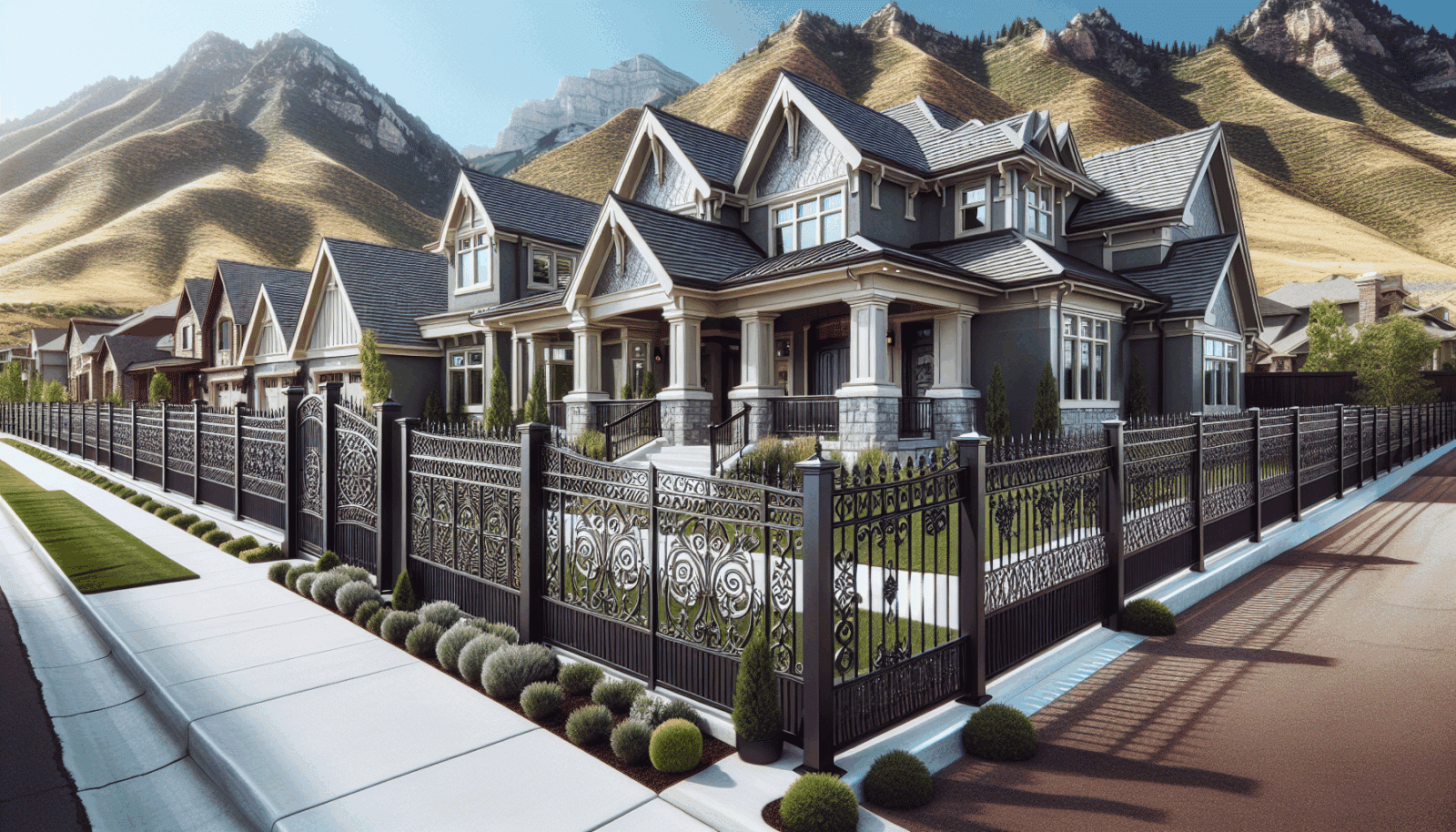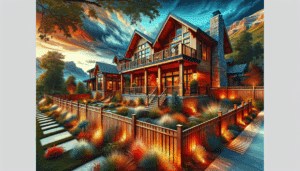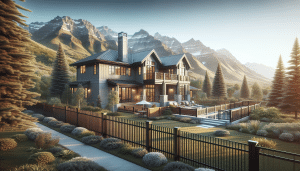Wrought Iron is one of those things that looks like it was made to last forever — classic, heavy, a little dramatic. But here’s the thing: beautiful metal doesn’t magically become a great fence because it arrived on your driveway. Install it wrong, skip a permit, or ignore the soil under your feet and that elegant barrier can sag, rust, or rattle like an old gate. You know what? Most homeowners and business owners in Salt Lake County, Utah County, and Davis County think they can save money by cutting corners. Sometimes they can. Often they can’t. Let me explain.
Let’s start with the biggest misstep: bad footings and shaky posts
People assume wrought iron is heavy and therefore stable. Doesn’t mean the posts will stay straight. The real work happens below ground. If you set posts in poor Concrete or on loose fill, they’ll tilt after freeze-thaw cycles — and Utah has those. Winters here make a mockery of weak footings.
- Wrong depth: Posts that are too shallow will heave. For Salt Lake and Davis Counties a frost line matters. Go below it.
- Poor concrete mix or no gravel base: Water needs to drain. A shallow hole with wet concrete is a recipe for rusted base plates and tilted posts.
- Ignore rocky soil: You might need a different approach — longer posts, bigger footings, or even helical anchors. Hitting bedrock is annoying, but we deal with it all the time.
Yes, it costs more time and a few bucks. But a solid footing is the backbone of your fence—literally. Think of it like building a house: no one skips the foundation.
Measure twice, cut once — but also plan for real life
We say measure twice, cut once, because it’s true. But here’s a mild contradiction: even perfect measurements can be upended by reality. Driveways aren’t perfectly straight, slopes happen, and neighbors’ fences stare back at you. What looked good on paper sometimes needs a tweak on site.
So what do pros do differently? They mock-up panels, check gate swings, and measure clearances for cars and lawn mowers. They also double-check utility lines. You might know where the gas meter is — but do you know where the irrigation main or fiber line is? Call 811 before you dig; it’s free and smart.
Welding and assembly: looks cool, but also needs skill
Wrought iron panels often get bolted or welded together. Welding looks clean, but if done poorly it weakens the metal and ruins the finish. A sloppy weld traps moisture and invites rust. A too-hot weld warps the design. It’s a fine balance.
Tip: Ask about the welding method. TIG and MIG are common — both have their place. A good fabricator uses the right welder, the right filler metal, and proper grinding techniques so joints are both strong and neat.
Finish and coatings — the part people notice last
Powder coating looks incredible and lasts longer than paint, but it must be applied correctly. Miss a clean-up step and the coating will flake. Spot-welding after coating? That’s another mistake that exposes raw metal.
Rust prevention is about layers: preparation, primer, and a topcoat. Salt, spring runoff, and those winter road treatments in Utah can accelerate corrosion. Don’t assume “black paint” equals protection. It doesn’t.
The gate — small detail, big headaches
Gates are where functionality meets personality. They must swing freely, latch reliably, and align with your landscape. Bad hinges, flimsy posts, or misaligned latches make daily use a chore. You might think a gate is just a gate — until it squeaks every time you let the dog out.
- Alignment: Even a half-inch off will make a gate drag.
- Hardware quality: Choose stainless or galvanized hardware in wet areas; they last longer.
- Self-closing springs: Handy for businesses, a bit annoying for backyard gatherings — decide what you want.
DIY vs hiring a pro — which way to go?
There’s pride in doing it yourself. Honest, we love a good weekend project. But wrought iron work mixes heavy lifting, metalwork, concrete, and permits. If you like fabricating, welding, and troubleshooting postholes at 20 degrees, go for it. If you prefer your weekends pizza-and-kids, maybe not.
Professionals bring tools you don’t have — Hilti drills, heavy plate compactors, Miller welders, DeWalt grinders — and experience navigating local codes in Salt Lake, Utah, and Davis counties. That experience prevents headaches: correct set-backs, permits, HOA approvals, and avoiding utility mishaps.
Permits, neighbors, and the small print
Permits are boring but necessary. Sometimes a fence triggers a permit; sometimes it doesn’t. Sometimes the neighbor’s fence is inches inside your property line and you find out only after digging. Legal mistakes are expensive and sticky. So call your local building department. Ask about height limits, visual triangle at intersections, and whether your fence needs a masonry base in commercial zones.
Also, talk to your neighbors. A little courtesy goes a long way — and keeps tempers cool when work starts early on a Saturday.
Maintenance missteps people forget
Wrought iron isn’t maintenance-free. It resists time better than many materials, but annual checks save money. Look for chips, bubbling paint, and loose bolts. A quick touch-up with rust-inhibiting primer and paint in spring can add years. You’d rather spend an afternoon painting than replace entire panels later, right?
Final thoughts — because it matters
Wrought iron fences are an investment in style and security. Install them poorly, and they’re a money pit. Install them the right way — thoughtful footings, precise measurements, quality welding, proper coatings, and the right hardware — and you’ll have a fence that’ll still look good when your neighbor replaces his Vinyl for the third time.
If you live in Salt Lake County, Utah County, or Davis County and you’re thinking about a new Wrought Iron Fence, or you’re worried your current one might be on shaky ground, give us a call. We build with local weather and soils in mind; we handle permits and HOA communication; we bring tools and experience — and we show up on time.
Ready to talk? Call Utah Fencing Company at 801-905-8153 or Request a Free Quote. We’ll walk your property, point out potential trouble spots, and give you options that fit your budget — straightforward, honest, and local.




